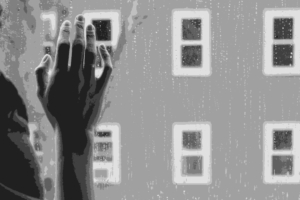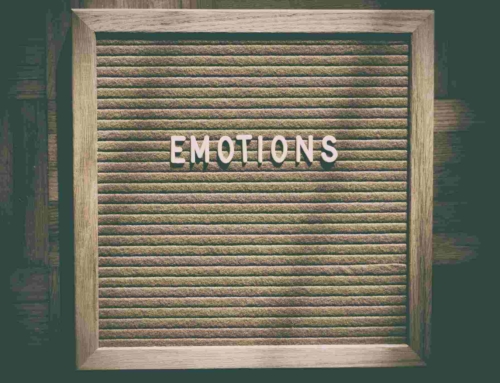Teens can be moody due to hormones. It is not uncommon for teenagers to spend hours in their rooms or talking/texting their friends. But when should you become concerned about their moodiness? When should you intervene or consider professional help?
Knowing the signs of depression in teens can help you pinpoint when their behavior is due to regular hormone changes and when it is possibly due to depression.
Signs of depression in teens.
 It is critical to catch the early signs of depression in teens. Without treatment, clinical depression can lead to self-harm or suicide attempts. As parents, we worry about our children’s personality changes.
It is critical to catch the early signs of depression in teens. Without treatment, clinical depression can lead to self-harm or suicide attempts. As parents, we worry about our children’s personality changes.
You worry when your extroverted son starts spending more time in isolation and ignoring his friends. You worry when your studious daughter’s grades plummet and she has more unaccounted absences. Unfortunately, worrying seems to be in the job description of being a parent.
But you should familiarize yourself with the signs of depression in teens so that you can seek professional help from a licensed mental health practitioner. In addition, several forms of therapy are available for teens and their families.
Read through the following list of signs of depression in teens and look for any that sound familiar.
1. Feeling sad or hopeless.
A most notable sign of depression is pervasive sadness. This sadness follows teens around like a dark cloud. They may have sensations of hopelessness. They may carry an emptiness inside, although they cannot pinpoint why they feel this way.
Depression can be due to hormonal shifts, chemical imbalances, grief, trauma, or something else entirely. Your child may seem “down in the dumps,” or his or her smile may seem forced. He or she might mope around the house and barely engage in conversation.
2. Fatigue or no energy.
Your child may complain of feeling tired. Have you ever asked your teen what was wrong only to receive the answer, “Nothing, I’m just tired”? Depression wears a person down. It can leave him or her feeling sluggish, tired, and with little energy.
Your once-energetic child who could ride a bike for hours a day is now too tired to hang out with friends or clean his or her room. As a result, your child may lie on the couch or bed most of the time while at home.
3. Irritable or angry.
A teenager’s mood swings are enough to make the parents feel irritable and angry. You might notice that your child seems to have a short fuse. He or she might snap at you or lash out at younger siblings, and you may sense an undercurrent of anger below the surface. Your children’s arguments might escalate to physical blows.
seems to have a short fuse. He or she might snap at you or lash out at younger siblings, and you may sense an undercurrent of anger below the surface. Your children’s arguments might escalate to physical blows.
Angry outbursts can be scary, and your child might display this behavior at school and home. But you are not the only one who feels afraid. These outbursts probably scare your child as well since he or she feels out of control.
4. Changes in sleep patterns.
As an adult, you probably know that depression, worry, and fear can stay on your mind, keeping you awake at night. The same can happen to your child. Anxious and intrusive thoughts can create a cycle of insomnia, making it challenging for your teen to fall asleep or stay asleep through the night.
Sleep deprivation affects academic performance. It is just as concerning when your teen sleeps too much, yet is exhausted much of the day. These sleep pattern changes can cause emotional fatigue.
5. Low interest in activities.
Does your teen seem uninterested in the things that once brought him or her joy? For example, maybe your child loved spending Friday evenings playing video games with his friends, but now he rarely turns the game console on. Depression takes the joy away from these activities. The teen feels as if engaging in the hobby is pointless.
Extroverted teens who have always loved going to the movies may find it too difficult to leave the house. You may be met with a shrug or a simple no when you offer to join your teen in one of his or her favorite activities. Your child’s disinterest may feel alarming to you.
6. Changes in friends.
 Does your teen have the same friends, or has he or she traded them in for a different clique? As you know, you become like the friends closest to you. Are your child’s new friends the type of influences you want in his or her life, or will they derail your teen’s academic performance, relationships, and home life?
Does your teen have the same friends, or has he or she traded them in for a different clique? As you know, you become like the friends closest to you. Are your child’s new friends the type of influences you want in his or her life, or will they derail your teen’s academic performance, relationships, and home life?
A new set of friends could signal that something is going on with your child, but he or she doesn’t feel comfortable talking with you about it. Let them know you are there for your child and see if he or she will open up about why he or she is no longer hanging out with old friends.
7. Changes in appetite and weight.
Adolescence can bring about appetite changes as hormones shift, so diagnosing a change in appetite due to depression can be challenging for counselors. But have you noticed if your child seems to be eating for comfort instead of hunger? For example, does it seem like he snacks more when upset or stressed? On the other hand, is your daughter avoiding food and mealtimes? Does she push her food around on her plate and try to convince you that she has eaten?
The teen years are the time when many eating disorders develop. Rapid weight gain or loss could signify that your teen struggles with emotions and body image.
8. Low self-esteem and confidence.
Body image issues tend to surface in adolescence. Children compare the size and shape of their bodies and their appearance to others. This comparison robs them of even more joy. They feel as if everyone notices their flaws, so their confidence drops. Teens with low self-esteem are vulnerable to bullies, which can make depression worse. You may need to work with a teen counselor and a school counselor to get to the bottom of any bullying.
9. Poor academic performance.
Are your child’s grades dropping? Does he or she have missing assignments, tardies, and absences? The loss of interest doesn’t only apply to pleasurable activities but to your child’s academic journey. Before assuming depression is to blame, ask your child why he or she is having trouble in school.
It may be a case where peers are causing problems in the class, your child can’t see the whiteboard or monitor (vision issues), or he or she is having trouble concentrating (daydreaming).
10. Talking about death or suicide.
The most problematic part about depression in teens is if they begin obsessively focusing on death and dying. Your child may ask questions about what happens when you die, what you might feel, or if there is a heaven. Although talk like this is scary, this is a sign that you must seek professional help immediately.
When a child shows signs of self-harm or talks of suicide, don’t wait to get help. Depression makes people believe that it will never get better and that they will always feel this way. Intervention could save your child’s life.
How therapy for teens can help.
There are several alternatives to depression treatment for teens. Your child’s counselor will create a plan and reassess it as necessary. The following are a few of the psychotherapy treatments available.
- Cognitive Behavioral Therapy (CBT)
- Talk therapy.
- Group therapy.
Cognitive Behavioral Therapy can help your child recognize negative thoughts and emotions and reframe them. With CBT strategies, your child can control his or her behavior and impulses by pausing to acknowledge feelings and thoughts, then changing his or her thinking.
Depending on the counselor and your child, talk therapy can occur in an individual, family, or group setting. For example, if you opt for family counseling, you will learn how to resolve conflicts, manage anger, and get to the root of your teen’s depression.
Does your child need teen counseling?
Do a few of these signs of depression in teens sound too familiar? Now that you know what to expect, reach out to our office today and schedule a session with a counselor specializing in teens. Your child is your number one priority. Let us help put your fears to rest and give your child the support he or she needs.
“Texting”, Courtesy of Adrian Swancar, Unsplash.com, CC0 License; “Raining again…”, Courtesy of Kristina Tripkovic, Unsplash.com, CC0 License; “Hands and Flower”, Courtesy of Lina Trochez, Unsplash.com, CC0 License; “Victory”, Courtesy of Miguel Bruna, Unsplash.com, CC0 License









